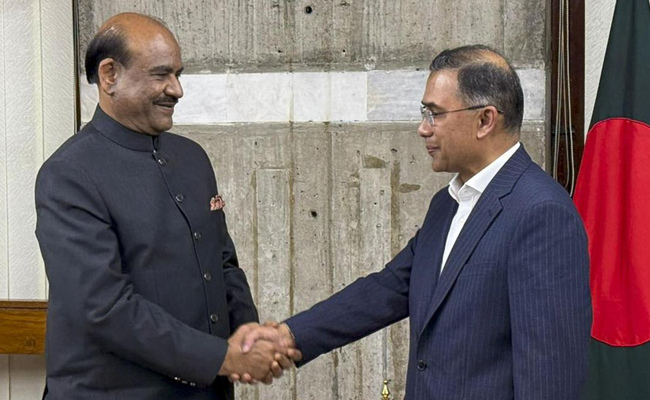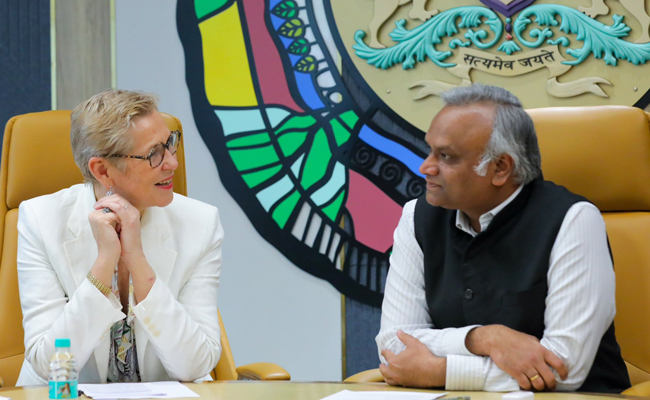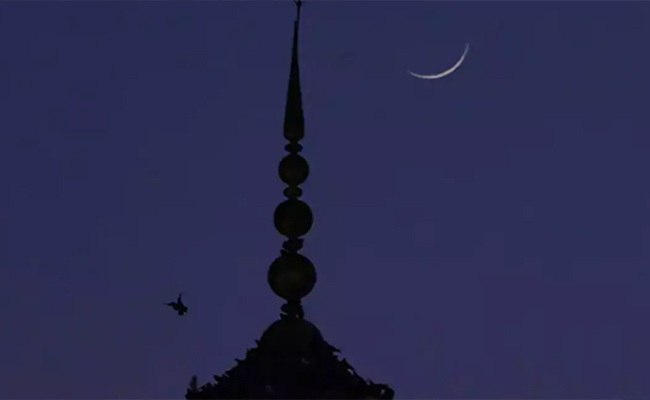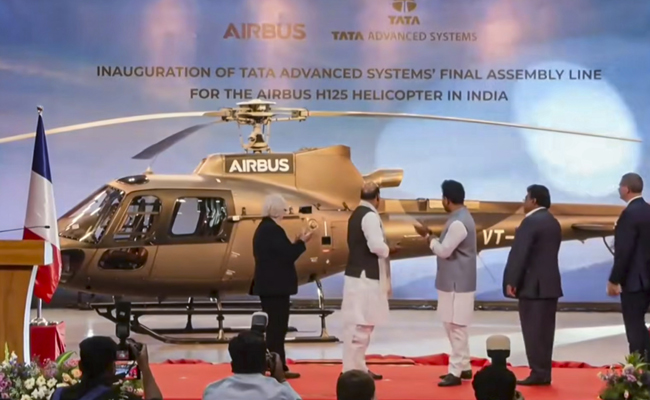Kolkata, April 20: Amid controversy over Tripura Chief Minister Biplab Deba's claim that internet and satellite communication existed in Mahabharata's time, state Governor Tathagata Roy on Friday said people in the Puranic period either had superhuman imagination or some kind of prototypes otherwise they could not have conceived such ideas.
"In the Puranic period, people had thought of 'Divya Drishti', Pushpaka Ratha' (divine sight, flying chariot, respectively), which means, they must have had superhuman imagination or some kind of prototype. There could be things which are beyond our imagination.
"Unless there was a prototype of something of that type, it was not possible to conceive such a thing," Roy said while responding to a query on the sidelines of the launch of his book "Syama Prasad Mookerjee".
In the 1960s, "could we ever imagine such a thing as a cell phone? Impossible... We could not conceive of it because there was no prototype in front of our eyes," he contended.
Deb had recently claimed that internet and satellite communication existed in the days of Mahabharata.
"Internet and satellite communication had existed in the days of Mahabharata. Sanjaya (the charioteer of king Dhritarashtra) using the technology gave a detailed account and description to the blind king about the battle of Kurukshetra," Deb had said on Tuesday.
Subsequently, the Governor had tweeted: "Tripura Chief Minister's observations about the happenings of the Puranic period are topical. It is virtually impossible to conceive of devices like 'Divya drishti',Pushpaka Ratha', etc. without some kind of prototype and study thereon."
Roy, however, on Friday said: "I have not said there was internet at that time. I have merely said this is a thing worth trying to find out."
Let the Truth be known. If you read VB and like VB, please be a VB Supporter and Help us deliver the Truth to one and all.
New Delhi (PTI): Lok Sabha Speaker Om Birla on Tuesday attended the swearing-in ceremony of new Bangladesh Prime Minister Tarique Rahman in Dhaka, and said India stands ready to support Bangladesh's endeavours to build a democratic, progressive and inclusive nation.
Separately, the speaker called on the new Bangladesh prime minister and conveyed the wishes of Prime Minister Narendra Modi.
He also handed over an invitation from Prime Minister Modi to Rahman to visit India, officials said here.
“Glad to attend the swearing-in ceremony of the new government of Bangladesh led by Prime Minister Tarique Rahman in Dhaka today. India stands ready to support Bangladesh’s endeavours to build a democratic, progressive and inclusive nation,” Birla posted on X.
Bangladesh High Commissioner to India, Riaz Hamidullah, said in a post on X, “Prime Minister Tarique Rahman conveys his greetings to India and PM Narendra Modi to the visiting India Lok Sabha Speaker Om Birla at a courtesy meet following the swearing-in of the new government.
“Speaker Birla conveyed wishes and an invitation to India. Both leaders expressed optimism to work together for the well-being of the people of Bangladesh and India, pursuing a people-centric menu of cooperation.”
Birla also met Maldives President Mohamed Muizzu, Bhutan Prime Minister Tshering Tobgay and other leaders on the sidelines of the event.
Led by Rahman, the Bangladesh Nationalist Party (BNP) swept to power with a two-thirds majority with 49.97 per cent votes and 209 seats in the polls held on February 12, results for which were declared on February 13.
The Jamaat-e-Islami, which was opposed to Bangladesh's independence from Pakistan in 1971, registered its best-ever performance with 31.76 per cent votes and 68 seats.
The National Citizen Party (NCP) secured the third-highest number of seats, six, and 3.05 per cent votes.
Bangladesh had invited Narendra Modi to the ceremony, but the prime minister could not attend the event as he was scheduled to hold talks with French President Emmanuel Macron in Mumbai on Tuesday.
On reaching Dhaka, Birla said the swearing-in of Rahman was an important moment that would strengthen people-to-people relations and shared democratic values between the two neighbours.
“Honoured to be in Dhaka representing India at the swearing-in ceremony of the new government led by Tarique Rahman as the prime minister. It's an important moment that will strengthen people-to-people ties and shared democratic values between our two nations,” Birla said.
Birla was accompanied by Foreign Secretary Vikram Misri and other officials.




